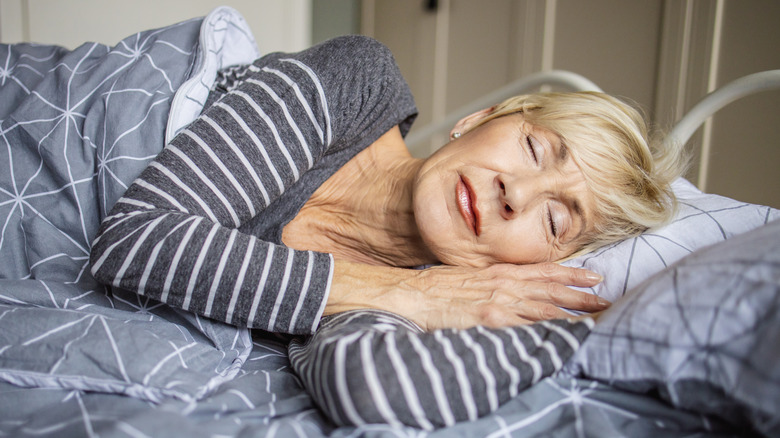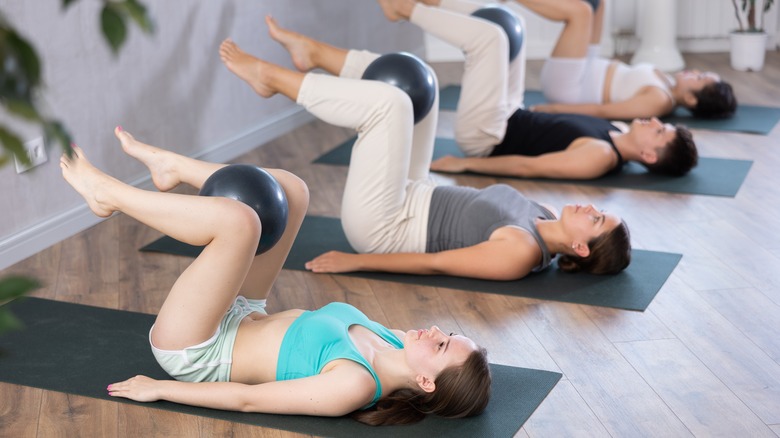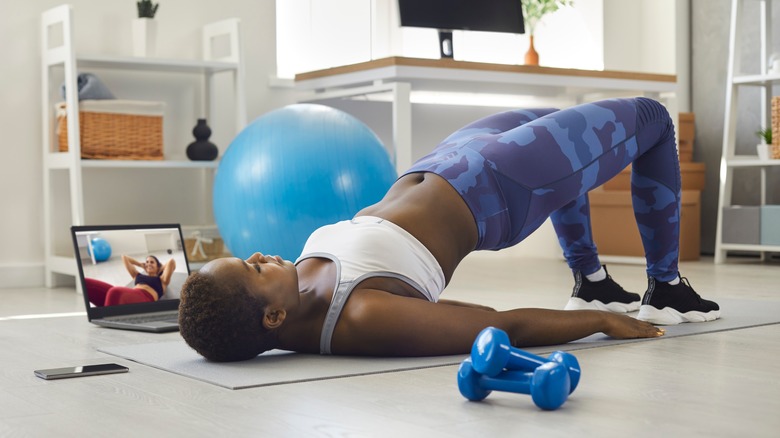The Underrated Exercise That Can Help You Sleep Like A Baby
Sleep can be difficult some nights. A stressful day at work, an argument with a loved one, or that afternoon latte can easily keep you up late. An evening cocktail sometimes helps you fall asleep quickly, only to jar you awake several hours later. Sleep medications might work great, but you also know they leave you groggy the next day.
A good wind-down ritual can help you sleep better because it helps transition your body and mind from your frenetic day to a state of restoration. This might include taking a bath, reading a book, or writing in a journal. Regular exercise can help you sleep, but exercising too close to bedtime can also keep you awake. Sometimes your body holds a lot of tension from your day, so finding ways to stretch your body without engaging in too much effort can wring out the stress and calm the mind.
Ever try Pilates? Pilates (pronounced pil-AH-teez) is a low-impact exercise that strengthens the core through a series of repetitive movements. Like yoga, Pilates also emphasizes flexibility while improving the mind-body connection. Research shows that Pilates can improve the quality of your sleep.
Pilates relaxes your body and mind to help you sleep
Pilates directs your mind away from the stress of your day and towards how your body is moving. When you do Pilates every day, you'll also improve your oxygen intake and blood flow through breathing techniques. Workouts can be adapted for people of any age and fitness level.
A 2018 study in the Archives of Gerontology and Geriatrics had older women do 60 minutes of Pilates for four months. Compared to the women who didn't do Pilates, the women had fallen asleep faster, improved the quality of their sleep, and relied less on medication to help them sleep. Pilates also helped them feel less depressed and more healthy.
Pilates doesn't just work on older women. Because obesity can interfere with sleep, a 2021 study in the Diponegoro Medical Journal looked at the effect of Pilates on younger adults with obesity. Pilates significantly improved their sleep quality. Three sessions of Pilates a week for eight weeks also helped female college students sleep better and alleviate their fatigue, according to a 2023 study in BMC Sports Science, Medicine, and Rehabilitation. As these studies suggest, practicing Pilates can positively impact your sleep habits.
Try this short Pilates practice to help you sleep
If you're new to Pilates, you can start with basic moves, such as breathing. Begin lying on your back with your knees bent and feet flat on the floor. Place your hands slightly below your ribcage with the fingers pointing towards one another. On an inhale through the nose, feel your ribcage and abdomen expanding as your hands spread apart. While you exhale, engage your core muscles by imagining you're trying to cinch the two sides of your waist together. See how close you can get your fingers of each hand to meet at the center of your abdomen. Continue to breathe in and out through the nose, using the breaths to bring fresh oxygen through your body.
Now let's get moving with the Pilates bridge. This is similar to a bridge pose in yoga, but you'll stretch your arms overhead. You'll be using the same breathing technique and posture described above. Starting at the tailbone, roll your spine off the floor vertebrae by vertebrae on the inhale, while also raising your straight arms up and overhead until the back of your hands reach the floor behind you. Feel the expansion of your chest and shoulders. Lower your arms back to your sides on the exhale as you simultaneously roll your spine back down to your mat. Repeat several times, seeing if you can deepen your breath.
Incorporating Pilates into your routine not only can help improve your sleep, but also may reduce back pain or migraine symptoms.


